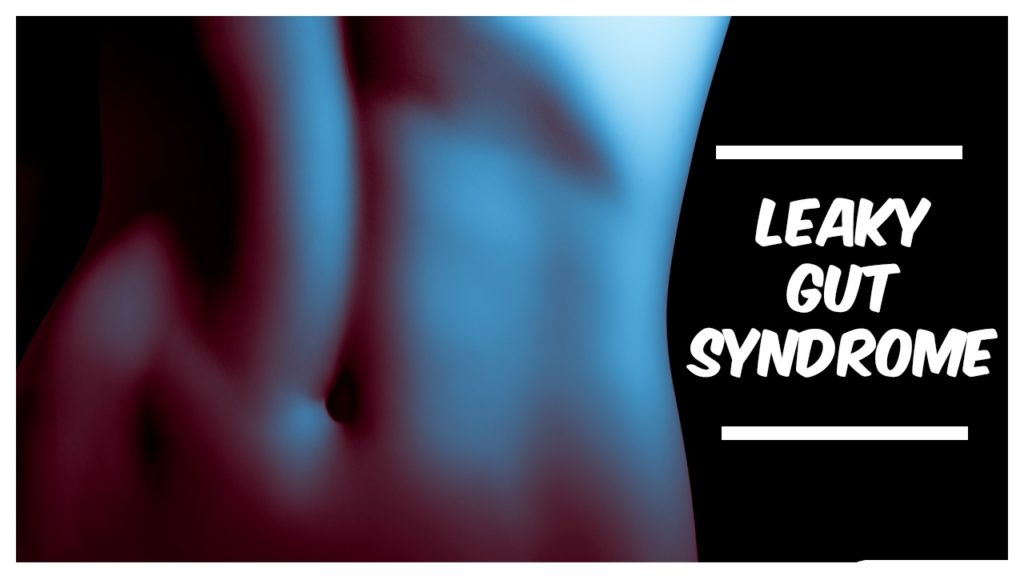This infographic looks at how leaky gut may be what’s causing all of your health problems.
leaky gut syndrome
“Leaky gut syndrome” is this the cause of MS and Chronic Fatigue Syndrome?
“Leaky gut syndrome” is a proposed condition some health practitioners claim is the cause of a wide range of long-term conditions, including chronic fatigue syndrome and multiple sclerosis (MS).
Proponents of “leaky gut syndrome” claim that many symptoms and conditions are caused by the immune system reacting to germs, toxins or other substances that have been absorbed into the bloodstream via a porous (“leaky”) bowel.
While it’s true that some conditions and medications can cause a “leaky” gut (what scientists call increased intestinal permeability), there is currently little evidence to support the theory that a porous bowel is the direct cause of any significant, widespread problems.
There is also little evidence that the “treatments” some people claim help to reduce bowel “leakiness”, such as nutritional supplements and herbal remedies, have any beneficial effect for most of the conditions they supposedly help.
What can cause a “leaky” bowel?
The inside of the bowel is lined by a single layer of cells that make up the mucosal barrier (the barrier between the inside of the gut and the rest of the body).
This barrier is effective at absorbing nutrients, but prevents most large molecules and germs passing from inside the bowel into the bloodstream and potentially causing widespread symptoms.
In some circumstances, this barrier can become less effective and “leaky”, although this in itself is not generally thought to be sufficient to cause serious problems.
Alcohol and certain painkillers
Alcohol, aspirin and non-steroidal anti-inflammatory drugs (NSAIDs) such as ibuprofen are well-known irritants of the bowel lining. They can damage the seals between cells, allowing some substances to pass through the gaps and into the bloodstream.
Gastroenterologists (specialists in gut conditions) generally agree that these irritants don’t usually cause anything more than just mild inflammation of a particular area of the bowel.
This will usually cause no obvious symptoms and will improve over time if you stop taking the medication or stop drinking alcohol. At the very worst, the inflammation might be bad enough to occasionally cause ulcers in the bowel lining.
Certain conditions and treatments
The following conditions and treatments can also damage the seals in the bowel lining:
inflammatory bowel diseases – such as Crohn’s disease
infections of the intestines – such as salmonella, norovirus and giardiasis
chemotherapy medicines
radiotherapy to the abdomen (tummy)
immunosuppressants (medicines that weaken the immune system)
complicated surgery
Generally, even in these situations treatment for a “leaky” bowel isn’t necessary. However, under certain circumstances people with Crohn’s disease, for example, may benefit from a liquid diet to reduce bowel inflammation, which also improves the “leaky” bowel (read more about treating Crohn’s disease).
The “leaky gut syndrome” theory
Exponents of “leaky gut syndrome” – largely practitioners of complementary and alternative medicine – believe the bowel lining can become irritated and “leaky” as the result of a much wider range of factors, including an overgrowth of yeast or bacteria in the bowel, a poor diet and the overuse of antibiotics.
They believe that undigested food particles, bacterial toxins and germs can pass through the “leaky” gut wall and into the bloodstream, triggering the immune system and causing persistent inflammation throughout the body. This, they say, is linked to a much wider range of health problems, including:
tiredness and chronic fatigue syndrome
lupus, rheumatoid arthritis and multiple sclerosis (MS)
skin conditions such as scleroderma and eczema
However, there is currently little evidence to suggest these conditions are in fact caused by having a “leaky” gut.
Promoted products
Many different “treatments” have been suggested by people who promote the idea of “leaky gut syndrome”, including diet books, nutritional supplements (containing probiotics, for example), herbal remedies, gluten-free foods and other special diets, such as a low FODMAP, low sugar or antifungal diet.
However, you should be wary of treatments offered by people who claim to be able to “cure” “leaky gut syndrome”, as there is little scientific evidence to suggest they are beneficial for many of the conditions they are claimed to help.
Some people even promote various nutritional “treatments” for autism, despite conflicting evidence and a recommendation from the National Institute for Health and Care Excellence (NICE) that special diets shouldn’t be used to treat the main symptoms of the condition.
Some of the dietary changes suggested for “leaky gut syndrome” (such as a low FODMAP diet) can help people with irritable bowel syndrome (IBS), but these seem to work irrespective of the presence of a “leaky” gut.
Generally, eliminating foods from the diet is not a good idea unless it’s strictly necessary (for example, if you have coeliac disease) and done on the advice of a healthcare professional, as it can lead to nutritional deficiencies.
How to Know if Your Gut Is Healthy
Your digestive system is a group of organs that are there to process the food you eat and turn it into useful nutrients which are then absorbed by your body and used to create energy. Sometimes the signs that something is wrong with our gut are obvious. Our stomach hurts, so we know something is up, but most of us aren’t aware of the extent to which our gut health can affect our overall health. There are different systems in our body, but they are not isolated and often if one thing goes wrong, it affects something else as well. This is especially true when it comes to gut health, which can lead to several problems that seemingly have nothing to do with our stomachs. Here we point out a few clues that something might be wrong with your digestive system, and how to deal with it.
Frequent stomach aches
If your stomach tends to hurt around the same time every day, then the culprit might be coffee, or alcohol. While coffee helps up feel more alert, it’s also bad for our bowels as it can irritate them and lead to sharp aches. Coffee is a natural diuretic, but it’s definitely not gentle on our stomachs. Alcohol is even worse, and one of the worst things you can drink if your bowels are irritated is beer. Drinking beer is pretty much the equivalent of taking a huge, jagged stone and hitting yourself in the gut repeatedly. If your stomach hurts, then stop with alcohol and coffee, at least for a few days. Cut back completely, and then slowly introduce it again once you are sure you’re feeling better. Check with your doctor to make sure you haven’t developed gastritis if the problem persists.
If you have problems with bloating, then the food you eat might be the issue. Sometimes, while we don’t have an outright allergy to certain food, we are sensitive to it, and it can lead to discomfort. The key is not to mindlessly gobble down anything that comes our way, but to pay attention to what we consume. Start writing down how you feel after every meal. If you keep feeling bloated every time you eat something specific, then it’s time to throw that out of your menu.
Autoimmune diseases
Like we previously mentioned, everything in our body is connected, and even if your stomach feels fine, it doesn’t necessarily mean that it is. If you have a disease like arthritis, or Hashimoto’s hypothyroidism, it’s quite possible that it was at least partially caused by leaky gut syndrome, a condition that causes inflammation all over the body. A possible cause of leaky gut syndrome is intestinal permeability. This is what happens when the junctions in the gut that control what passes through the small intestine fail to work as they should. Substances are let into our bloodstream and this causes inflammation and can lead to serious diseases. To solve this, it usually requires you to make a lifestyle change. You need to have a balanced diet that is gentle to your stomach, and start taking probiotics. Stress can also play a role, so you should find a way to deal with it in a positive manner.
Depression and achy limbs
When we’re sad, we reach for comfort food because it makes us feel better, at least temporarily. However, that same food might not be so good for us, because certain bacteria in your gut can increase the chance of developing depression. If we often feel lousy and if our limbs ache for seemingly no reason, the food we eat might be the cause for it. Restrain yourself from reaching for junk food whenever you’re feeling sad, and develop a habit of eating fruit instead. Start a light exercise regime and you should be feeling better in no time.
The gut is our biggest immune system organ, so it’s obvious that we must take good care of it. What we consume and how we treat our stomach will influence our overall health, so paying attention to diet is crucial to leading a better life. Stop to think before you eat, the key is in being mindful of our body’s needs. If you keep this in mind, your body will be grateful to you and you will start seeing the positive changes quickly.
Roxana Oliver is a travel enthusiast and lifestyle consultant from Sydney and she loves to write about her adventures. She is all about the healthy lifestyle, loves to run with her husband and dogs and has fun cooking exotic meals for her family. Being a typical Aussie, she often hits the waves and loves beaches and sunshine! You can find out more about her writing following her on twitter and facebook. She is also one of the editors at Higstylife Magazine.




